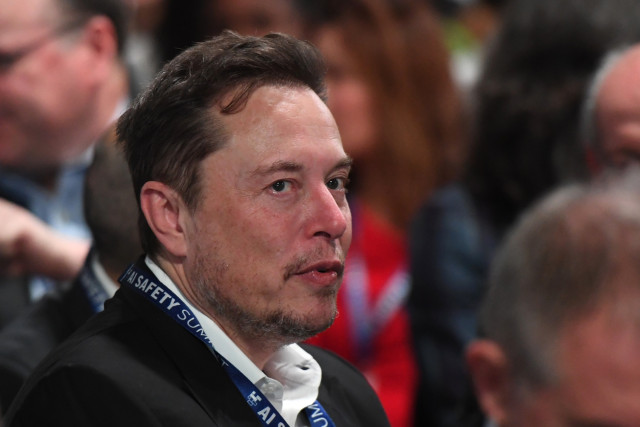Elon Musk Aims for Greater Voting Control at Tesla for AI Advancements
- Posted on January 16, 2024
- Business
- By Arijit Dutta
- 316 Views
Elon Musk, Tesla's CEO, expresses discomfort, urging for increased voting control to steer the company's AI initiatives. Musk emphasizes the need for 25% control to ensure influence without vulnerability to overrides, highlighting Tesla's uniqueness compared to rivals. This move follows Musk's share sale to acquire X, signaling a strategic shift.
 Image Source -www.bloomberg.com
Image Source -www.bloomberg.com
In
a recent development, Tesla's enigmatic CEO, Elon
Musk, has publicly expressed his unease regarding the trajectory of the
company's artificial intelligence (AI) initiatives. The visionary entrepreneur,
also known for leading SpaceX and X (formerly Twitter), has conveyed his desire
for an augmented level of voting control within Tesla to further propel
advancements in AI and robotics.
At
present, Musk holds a 13.4% stake in Tesla, a consequence of divesting shares
to acquire X in a notable $44 billion transaction consummated in October 2022.
Musk contends that his current ownership is insufficient to exert the necessary
influence to steer Tesla as a frontrunner in the AI sector.
Taking
to his official handle on X, Musk articulated, "Unless that is the case, I
would prefer to build products outside of Tesla. You don't seem to understand
that Tesla is not one startup, but a dozen. Simply look at the delta between
what Tesla does and GM." This statement underscores Musk's perception of
Tesla as a conglomerate of distinct startups, distinguishing it from more
conventional automotive counterparts.
Musk emphasizes the critical threshold of 25% voting control, a level he deems adequate for influence yet not so overpowering that it prevents potential challenges. He points out the nuanced dynamics of board influence, stating, "If I have 25 percent (voting control), it means I am influential, but can be overridden if twice as many shareholders vote against me vs for me."
The
tech luminary questions the motivating factor behind stock ownership alone,
citing examples like Fidelity, which holds similar stakes without active
engagement in day-to-day operations. While acknowledging the competence of the
Tesla board, Musk asserts that the strategic vision for AI leadership
necessitates a higher degree of influence, especially in the ever-evolving
landscape of technological innovation.
This strategic move by Elon Musk not only reflects his commitment to Tesla's AI endeavors but also underscores the delicate balance between corporate governance and the pursuit of cutting-edge technological advancements. It positions Musk's quest for increased voting control as a pivotal step in ensuring Tesla's continued leadership in the competitive realm of artificial intelligence and robotics.




